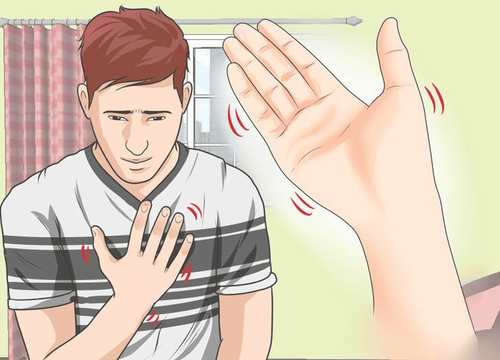This is an automatically translated article.
Article written by Yoga Meditation Specialist Chu Thi Nha - High-tech Unit for Treatment of Cerebral Palsy and Autism - Vinmec Times City International Hospital
Meditation brings a lot of benefits to young children. It helps to relieve shyness and anxiety as well as reduce aggression and hyperactivity. Meditation has the effect of increasing concentration, creativity and emotional balance. Meditation is a great tool for kids to deal with pressure at home and at school. Children of all ages, from very young to teenagers, can practice meditation and achieve a lot of good.
What are the benefits of mind training through meditation?
Relax the body - meditation, which involves letting go, the ability to slowly release tension in the body and mind. In addition, meditation is also a relaxation with very special benefits. It involves a steady alertness that helps ensure that the body uses adequate energy, not only in maintaining an upright posture while meditating but also in performing daily tasks. In other words, meditation re-educates the body so that it gets rid of the bad habits that cause unnecessary stress and exertion that we get into very early in life. With that comes better body awareness. Yogis will become in tune with their body, thereby detecting stress and promptly releasing it.

Thiền giúp trẻ nâng cao sự tập trung
Improve concentration - concentration is the foundation for the entire meditation system. But meditation is not only built on concentration, it is also one of the best ways to develop concentration. And concentration develops in meditation, because it is pure concentration and not just the ability to focus on something. Because of this, it is easier for meditators to shift their minds to what needs to be learned or done and focus on that until the task is completed. Greater control over thought processes - this does not mean that meditators will be able to stop unwanted thoughts when necessary (although some people may). It means that they will be less dominated by them. Simply put, they perceive and observe their thoughts but are not controlled by them. Therefore, unwelcome thoughts will have less power to dominate or disturb the mind. Enhancing tranquility and the ability to cope with stress - just as thoughts are reduced in power for meditators, so are emotions. The meditator may perceive sadness or anger, but like unwanted thoughts, these emotions are separate from the meditator. Inside they are peaceful and quiet despite their presence. Improved mindfulness - mindfulness is the ability to be aware of what's going on around us and to shift our attention from one thing to another as it occurs, rather than being distracted by thoughts and conversations. farts inside to the point of living as if sleepwalking.

Trẻ có thể cải thiện trí nhớ và sáng tạo hơn đó là lợi ích của thiền đối với trẻ
Improve self-knowledge - if we are asked if we understand ourselves, the answer is usually yes. But in reality, most of us are strangers in our mental world. We tend to live on the surface of our inner life, aware only of conscious thoughts but are blind to what is happening in the deeper levels of the unconscious. We don't even know how thoughts come to be, or where they actually come from. Enhancing creative thinking - creativity involves accessing, or being open to, the unconscious layers of the mind where unique ideas arise. The quieter the conscious mind is, the easier it is for us to reach the unconscious. Improved memory - most of us forget because we can't focus on what's going on to put that information back into our memory. Much of it is due to the interference of the conscious mind - especially when we are nervous or restless, like when taking a test. Meditation calms those emerging emotions and allows us to recall the essentials. This benefits from the cognitive improvement we mentioned above. We can't expect to be able to remember them effectively if we don't really pay attention to them in the first place. In addition to psychological and spiritual benefits, meditation also offers health benefits. These benefits vary from person to person, but can include lower blood pressure, lower heart rate, and other physiological benefits from relaxation and lower stress levels. The benefits mentioned above operate not only when one is meditating, but also in daily life. Yogis will find themselves becoming more and more calm, no longer dominated by negative emotions and fatigue. They will find it easier to face the challenges and pressures of life in addition, by calming their mind in meditation before accepting difficult tasks, they are often more likely to achieve success. greater work in reducing stress for oneself.
Meditation is not something that can only be done while sitting cross-legged on a cushion. You can meditate while standing, lying down, or sitting in a chair. The state of the mind is far more important than the posture of the body, although sitting upright is indeed valuable in supporting concentration, the heart of meditation. And meditation is not something that can only be done in the quiet and private atmosphere of a private room. You can meditate anywhere – on the train, while waiting for the bus before attending a meeting or interview – in any free time.
(Excerpt from the book: Meditation for children, David Fontana Ingrid Slack, translated by Thao Hanh, Hanoi Publishing House)
Please dial HOTLINE for more information or register for an appointment HERE. Download MyVinmec app to make appointments faster and to manage your bookings easily.













